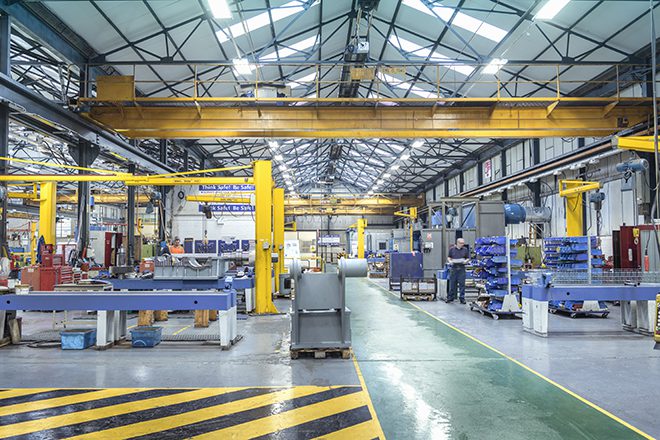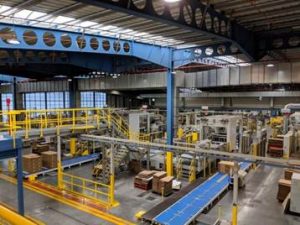Global Sustainable Equity: news and opportunities (November 2021)
Hamish Chamberlayne, Head of Global Sustainable Equities, reflects on the previous quarter of 2021 and looks ahead to the opportunities in the world of sustainability.

6 minute read
Key takeaways:
- Discouraging IPCC findings as well as physical climate events, such as floods and forest fires which have impacted food supplies, dominated headlines in Q3.
- Encouragingly, both policy and innovation continue to move towards a sustainable future.
- We remain focused on the digitalisation, electrification, and decarbonisation trends as they become the driving features of our sustainable global economy.
There has been plenty to drive stock markets higher over the past year. Monetary and fiscal stimulus, designed to keep consumers and businesses solvent through the lock-down measures, has been plentiful. We have seen an impressive ability by many companies to adapt to this new world, and transition physical business models to digital and virtual ones. With the travel and dining industries locked-down, spending-on-experiences has transitioned back towards spending-on-things for many consumers, driving earnings growth where we may not have expected it. Improved demand has been coupled with a tight control on corporate expenses, leading to impressive operating leverage and strong overall market earnings growth. And all of this came with a backdrop of lower-for-longer interest rates expectations.
 However, what were once highly efficient global supply chains didn’t look quite so efficient when there were sharp spikes in demand, there were severe shipping bottlenecks and factory closures as COVID-measures hit worker availability. These frictions have in turn led to some price inflation, to higher interest rates expectations, and to concerns over companies’ ability to deliver the volumes they expect at the costs they have guided to. Throw into this mix the concerns over the leverage of the property development sector in China, and the uncertain path of public policy pronouncements there, and a quarter of flat global equity performance was entirely understandable.
However, what were once highly efficient global supply chains didn’t look quite so efficient when there were sharp spikes in demand, there were severe shipping bottlenecks and factory closures as COVID-measures hit worker availability. These frictions have in turn led to some price inflation, to higher interest rates expectations, and to concerns over companies’ ability to deliver the volumes they expect at the costs they have guided to. Throw into this mix the concerns over the leverage of the property development sector in China, and the uncertain path of public policy pronouncements there, and a quarter of flat global equity performance was entirely understandable.
As equity investors, we are fascinated by these macro, micro and stock-market dynamics and follow them with interest. But as sustainability-focused equity investors what captures our attention even more are the unfolding events that provide us with the signposts to better understand the on-going transition to a more sustainable global economy.
Climate change evidenced on paper and in reality
Stark warnings came from two clear directions – the publication of the Intergovernmental Panel on Climate Change’s (IPCC) sixth assessment report, and the tangible and dramatic effects of climate change that we witnessed on global food supply. One of the most striking findings of the IPCC’s report was that even under its most ambitious emission reduction scenarios it is estimated that there is a less than 50% chance of staying below the Paris Agreement’s 1.5 degree warming target. Furthermore, the ‘budget’ to get there allows for only another fifteen years of industrial emissions at the current emission rates.
 We also saw evidence of the dangers of climate change in the numerous cases of agricultural destruction that hit the global headlines: crippling frosts in Brazil, devastating floods in China and Germany, droughts and wildfires across the US and Canadian plains. The damage to harvests and the consequent food shortages and dramatic price rises were another warning that climate change is hurting our economy and societies right now, not in some distant future.
We also saw evidence of the dangers of climate change in the numerous cases of agricultural destruction that hit the global headlines: crippling frosts in Brazil, devastating floods in China and Germany, droughts and wildfires across the US and Canadian plains. The damage to harvests and the consequent food shortages and dramatic price rises were another warning that climate change is hurting our economy and societies right now, not in some distant future.
Encouraging advances made for a sustainable global economy
Balancing the ‘stark’ was some of the ‘encouraging’. We saw it in some high-profile policy announcements, including the European Union’s (EU) ‘Fit for 55’ package of detailed legislation aimed to cut greenhouse gas emissions by at least 55% by 2030. We saw it in the Japanese government’s announced energy plan to reduce the mix of fossil fuels in the country’s electricity generation mix from 75% in 2020 to 41% by 2030. And we saw it in some of the innovative solutions that the companies we meet are developing to tackle these issues, whether that be in patented technologies to capture carbon during the cement manufacturing process (one of the heaviest industrial emitters), or in the potential for short-range electric-powered aircraft. Both policy and innovation continue to move us towards a more sustainable future, and that most certainly encourages us.
On our near-term radar is the upcoming COP26 in Glasgow. This will encompass twelve days of talks on tackling climate change and there will be leadership delegations from over 190 countries in attendance. In the past year, the world’s most influential governments have made a number of ambitious commitments to tackle climate change head on and at COP26 we expect to see further commitments and action plans being put into place. Keeping warming to 1.5°C is of fundamental importance and we hope to see further agreements on a pathway forward.
This quarter has left many questions for us to consider.
If we are entering a period of more sustained inflation, does this catalyse the need for greater efficiencies to do more with less? We think so, and as such, efficiency remains one of our ten positive impact themes. After such a long period of relative calmness in global stock markets we are long overdue a period of higher volatility and we expect further gyrations as the global economy digests supply chain dislocations and businesses navigate inflationary pressures. We always keep in mind, however, that higher prices contain the seeds of their own destruction, since this incentivises businesses to invest in efficiency or substitution. Ultimately, we view an inflationary environment as being supportive for the growth of companies with robust business models that have a positive impact on the environment and society.
 Does the semi-conductor shortage across global supply chains continue to boost the demand for the designers and fabricators of these increasingly critical components, turning this from a cyclical to a structural growth industry? Will fossil fuel energy price hikes further spur the need for more, not less, investment in our renewables fleet, technologies and connecting infrastructure? And will the Facebook whistle-blower testimony turn even greater attention to the culture, mission, and management ethics of the companies that our pension funds and long-term savers become shareholders in? We think “yes” to all of the above.
Does the semi-conductor shortage across global supply chains continue to boost the demand for the designers and fabricators of these increasingly critical components, turning this from a cyclical to a structural growth industry? Will fossil fuel energy price hikes further spur the need for more, not less, investment in our renewables fleet, technologies and connecting infrastructure? And will the Facebook whistle-blower testimony turn even greater attention to the culture, mission, and management ethics of the companies that our pension funds and long-term savers become shareholders in? We think “yes” to all of the above.
Remaining focused on long-duration sustainable themes
We remain focused on the digitalisation, electrification, and decarbonisation trends as they become the driving features of our global economy. Our investment approach is all about identifying the companies that are on the right side of these long-duration sustainability themes, and that are playing a positive role in the transformation of the global economy towards a more sustainable one. We spend our time looking for the companies that will have exciting growth opportunities, cultures of innovation, and have built-in financial resilience.
These are the views of the author at the time of publication and may differ from the views of other individuals/teams at Janus Henderson Investors. References made to individual securities do not constitute a recommendation to buy, sell or hold any security, investment strategy or market sector, and should not be assumed to be profitable. Janus Henderson Investors, its affiliated advisor, or its employees, may have a position in the securities mentioned.
Past performance does not predict future returns. The value of an investment and the income from it can fall as well as rise and you may not get back the amount originally invested.
The information in this article does not qualify as an investment recommendation.
Marketing Communication.
